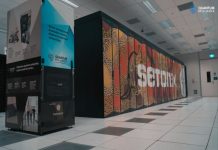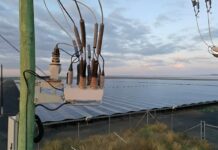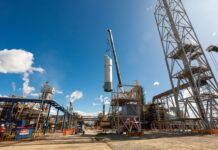
An Australian research team, alongside their American collaborators, has clinched the 2024 Gordon Bell Prize, often referred to as the “Nobel Prize” of high-performance computing (HPC).
The accolade was announced at the SC International Conference for High Performance Computing, Networking, Storage and Analysis in Atlanta, Georgia.
The team, led by Associate Professor Giuseppe Barca from the University of Melbourne, was recognised for their groundbreaking research titled “Breaking the Million-Electron and 1 EFLOP/s Barriers: Biomolecular-Scale Ab Initio Molecular Dynamics Using MP2 Potentials.”
This breakthrough marks a new frontier in quantum-accurate simulation of biological systems, paving the way for accelerated and cost-effective drug development, particularly for diseases previously deemed too complex to treat, as revealed in a news release.
The Gordon Bell Prize, established in 1987 and funded by computing pioneer Gordon Bell, celebrates exceptional advancements in HPC.
The award honours the Australian-led team for developing software that enables simulations of drug behaviour with unparalleled quantum mechanical accuracy.
This capability includes observing bond breaking and formation over time, crucial for assessing drug efficacy and designing innovative treatments.
The team leveraged the immense “exascale” power of the Frontier supercomputer at the Oak Ridge Leadership Computing Facility in Tennessee, USA.
Their software delivers highly precise predictions of chemical behaviour in molecular systems with hundreds of thousands of atoms, setting a new benchmark in computational chemistry.
Expressing his gratitude, Associate Professor Barca said, “My heartfelt thanks to the Association for Computing Machinery for this wonderful acknowledgement and to the University of Melbourne, my research team and our collaborators for helping to achieve the breakthrough.”
The University of Melbourne’s Deputy Vice-Chancellor (Research), Professor Mark Cassidy, commended the team’s efforts, calling it “a tremendous endorsement of Australian innovation and research.”
“Associate Professor Barca and his colleagues are an inspiration to all Australians, including the next generation of innovators. By drawing on our strengths in innovation, technology, big data, interdisciplinary collaboration and wider partnerships, their work promises to make an extraordinary contribution to society,” Cassidy remarked.
Faculty of Engineering and Information Technology Dean, Professor Thas Nirmalathas, echoed the sentiment, highlighting the breakthrough’s potential to improve global health outcomes.
In 2023, Associate Professor Barca co-founded QDX Technologies, a company dedicated to leveraging high-performance quantum simulations for therapeutic design.
The firm has already secured partnerships with pharmaceutical companies and start-ups across Australia, Singapore, and the United States, underscoring the real-world impact of the team’s research.
The award-winning researchers include Giuseppe M. J. Barca (University of Melbourne and QDX Technologies), Jakub Kurzak (Advanced Micro Devices Inc), and Dmytro Bykov (Oak Ridge National Laboratory).
The Australian National University team members are Jorge L. Galvez Vallejo, Elise Palethorpe, and PhD students Ryan Stocks, Fiona Yu, and Calum Snowdon.




















